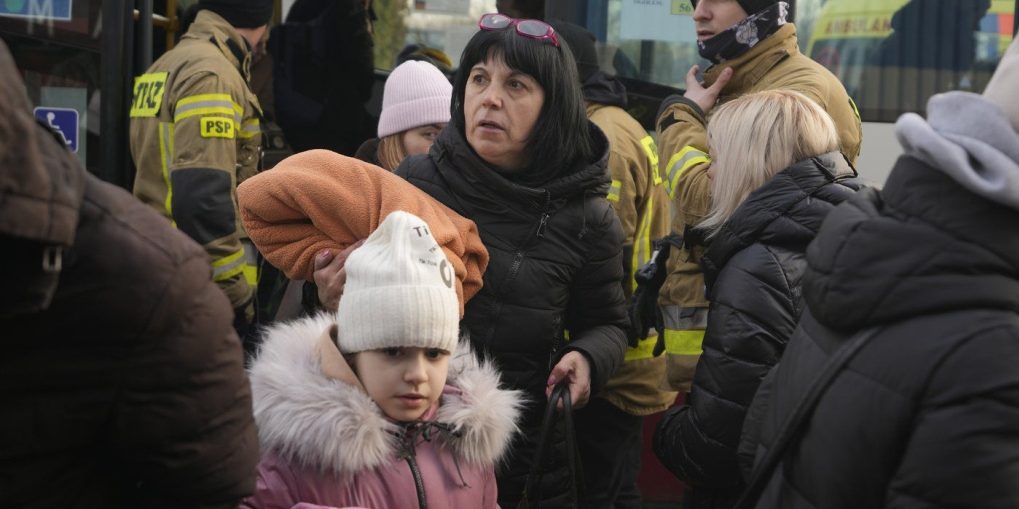Hamilton trauma expert says social support critical during war in Ukraine
Published March 16, 2022 at 4:48 pm

A trauma expert based in Hamilton says the sudden and escalating war in Ukraine is likely to have a long-lasting impact — particularly on children, but even simple social support can help prevent or mitigate post-traumatic stress disorder (PTSD).
More than two million refugees have fled Ukraine, mostly women and children. Civilian volunteers have taken up arms to fight attacking Russian forces and hundreds of thousands of vulnerable Ukrainians remain trapped as evacuation routes are under attack.
Margaret McKinnon is a McMaster University professor of psychiatry and behavioural neurosciences and has studied PTSD in soldiers, veterans, and accident victims. While the effects of trauma are complex and unpredictable, McKinnon says disassociation, betrayal, and overwhelming fear can linger.
“We would expect many of these symptoms to persist in children and in adults, even when they are in a safe environment,” she says. “My expectation is that, for many survivors, it will take a significant time and intervention for these symptoms to heal.”
McKinnon adds that the unpredictability and chaos associated with war create further challenges, especially for children.
“These are people who never expected to be in a situation like this. They live in a country where they did not anticipate this could happen and, for many, the war will have a profound psychological impact,” she says. “With children who experience trauma early in their development, we often see them becoming not present in their surroundings or numbed out, which is a way of escaping inescapable trauma or harm.”
McKinnon has personal experiences with PTSD after surviving a plane crash in Portugal in 2001.
While interventions are very difficult because of the expansive number of people impacted and displaced by the war, McKinnon says social support is critical in PTSD prevention.
“I think in Ukraine, we see people are really holding together and supporting one another and that social support will be a buffer,” she explains. “It is important to try to keep people together, to allow them to be present with one another, and that families be kept together rather than separated as they flee. These are very important things to ward against PTSD.”
Mental health professionals have scrambled to provide the people of Ukraine with resources. Theatre workshops and art classes have even sprung up to offer temporary distractions from the war.
Russian forces destroyed a theatre in Mariupol Wednesday where hundreds of people were sheltering and rained fire on other cities, Ukrainian authorities said, even as the two sides projected optimism over efforts to negotiate an end to the fighting.
In Kyiv, residents huddled in homes and shelters amid a citywide curfew that runs until Thursday morning, as Russian troops shelled areas in and around the city, including a residential neighbourhood 2.5 kilometres from the presidential palace. A 12-story apartment building in central Kyiv erupted in flames after being hit by shrapnel.
And 10 people were killed while standing in line for bread in the northern city of Chernihiv, the Ukrainian General Prosecutor’s Office said.
–with files from The Canadian Press
insauga's Editorial Standards and Policies advertising





